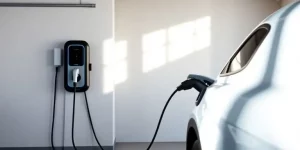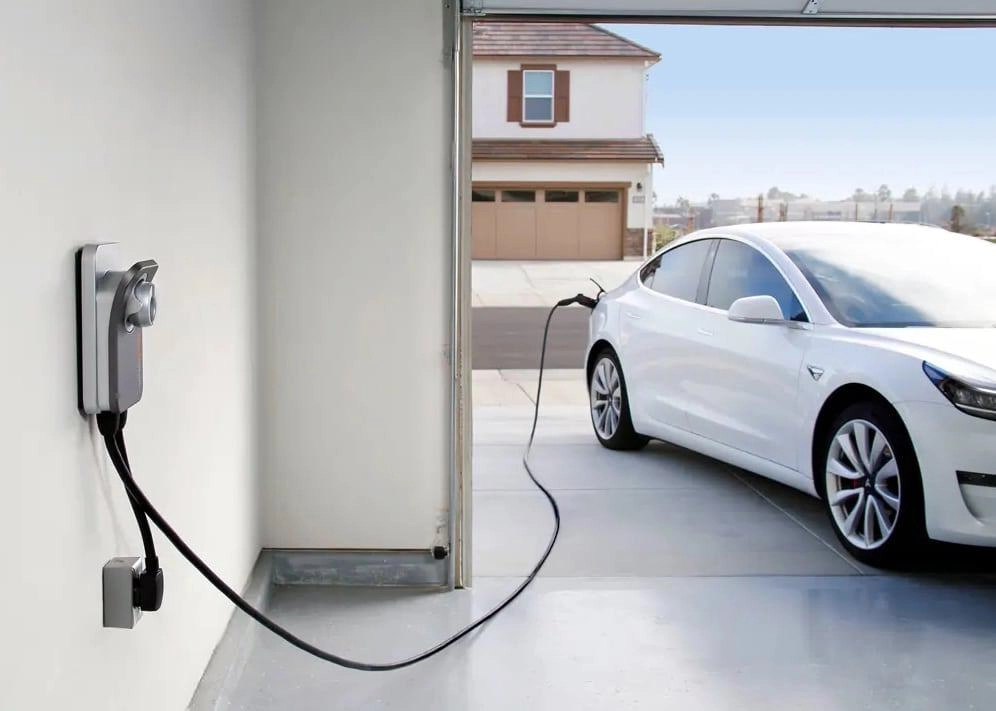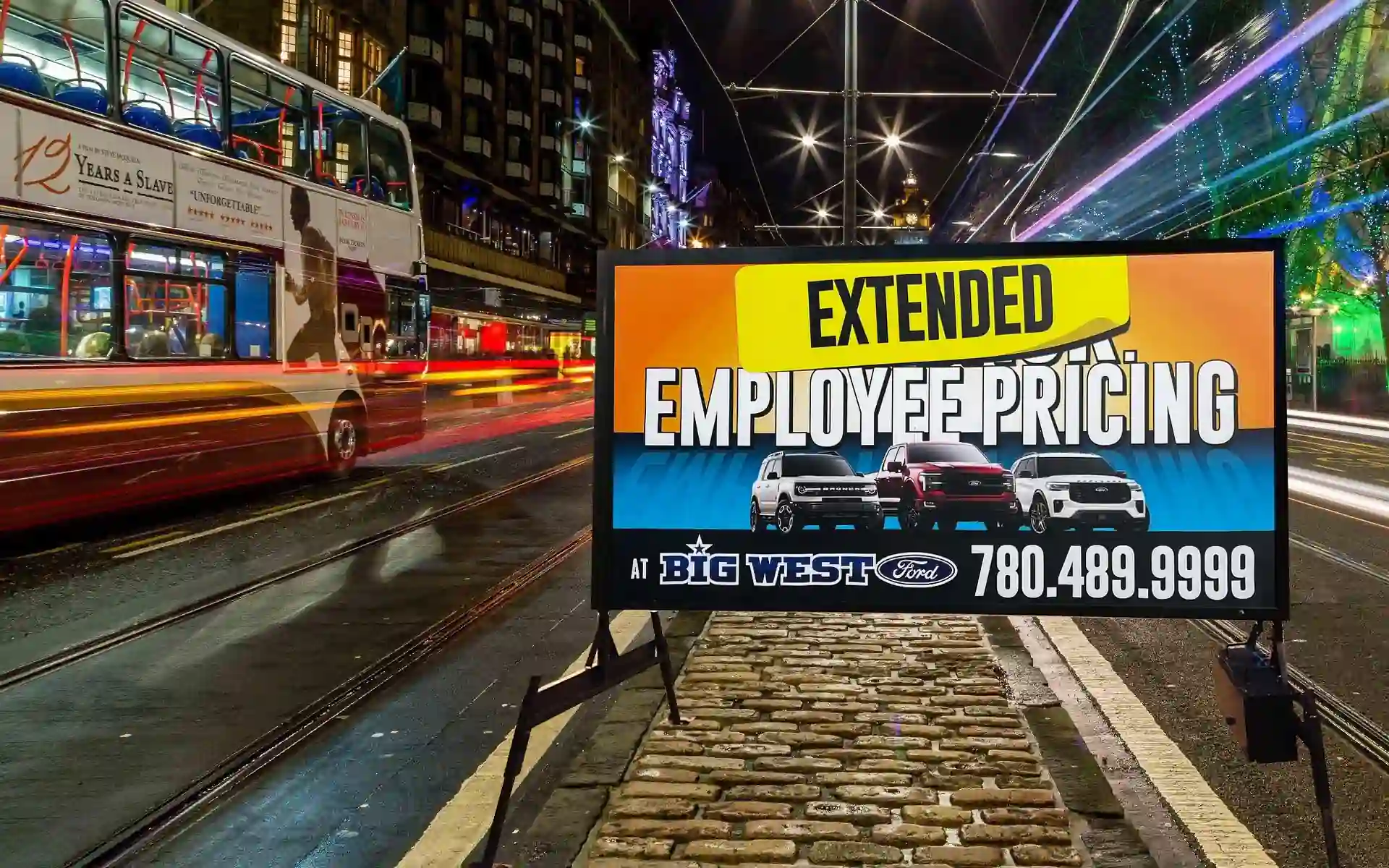Homeowners face a critical decision when it comes to EV charger installation: should they opt for a DIY approach or hire professionals? Each option presents distinct advantages and drawbacks that can greatly impact both immediate costs and long-term returns on investment. Understanding these implications is essential for making an informed choice. The following analysis will explore the factors influencing ROI in each installation method, revealing insights that may guide homeowners in their decision-making process.
Key Takeaways
- DIY installations save on upfront costs but may incur additional expenses from mistakes, impacting overall ROI negatively.
- Professional installations ensure compliance with safety standards, reducing risks and enhancing long-term reliability, leading to better ROI.
- Properly installed chargers by professionals can increase property value, contributing positively to ROI for homeowners.
- Local incentives and rebates often favor professional installations, boosting the financial benefits and ROI for homeowners.
- Long-term performance and reliability of professionally installed chargers often outweigh initial higher costs, making them a better investment.
Understanding the Basics of EV Charger Installation
When considering the installation of an electric vehicle (EV) charger, homeowners must first understand the fundamental aspects of the process. Key considerations include the type of charger, the electrical capacity of the home, and local regulations. There are different types of EV chargers, ranging from Level 1, which can be plugged into standard outlets, to Level 2, requiring dedicated circuits. Homeowners should assess their electrical system to guarantee it can handle the additional load without compromising safety. Understanding local codes and permitting requirements is also essential, as these can influence the choice between DIY vs professional EV charger installation. A well-informed approach guarantees that homeowners can navigate the complexities of installation, leading to a safer and more efficient charging solution.
The Pros and Cons of DIY EV Charger Installation
While many homeowners may be tempted to take the do-it-yourself (DIY) approach to EV charger installation, it is essential to weigh the pros and cons carefully. On one hand, DIY installation can offer significant cost savings, as homeowners can avoid labor fees associated with professional services. Additionally, it provides the satisfaction of completing a project independently. However, the cons cannot be overlooked. Improper installation poses safety risks, potential damage to electrical systems, and the possibility of voiding warranties. Moreover, maneuvering local regulations and obtaining necessary permits can be intimidating for those unfamiliar with electrical work. Ultimately, the decision regarding DIY vs professional EV charger installation hinges on the homeowner’s skills, confidence, and understanding of the potential risks involved.

Evaluating the Benefits of Professional EV Charger Installation
Opting for professional EV charger installation offers several advantages that can considerably enhance the overall experience for homeowners. First, licensed electricians guarantee compliance with local building codes and safety standards, minimizing the risk of potential hazards. Their expertise allows for a tailored installation, considering the specific electrical requirements of the home and the EV charger model. Furthermore, professional installations often come with warranties, providing peace of mind and protection against unforeseen issues. Additionally, professionals can offer valuable advice on ideal charger placement and future-proofing the electrical system. Ultimately, homeowners who choose professional EV charger installation benefit from enhanced safety, reliability, and long-term performance, contributing to a more seamless integration of electric vehicle charging into their daily lives.
Cost Analysis: DIY Vs Professional EV Charger Installation
Cost considerations play a pivotal role in the decision-making process for homeowners contemplating the installation of EV chargers. When analyzing DIY vs professional EV charger installation, the initial expenses differ considerably. DIY installation typically incurs lower upfront costs, limited to purchasing the charger and necessary materials. However, homeowners must account for potential mistakes, which can lead to additional expenses if corrections are needed. Conversely, professional installation entails higher costs due to labor and expertise but guarantees compliance with local regulations and safety standards. This professional approach generally mitigates risks associated with improper installation, possibly saving money in the long run. Ultimately, homeowners must weigh these financial aspects carefully to determine the most suitable option for their specific needs.
Long-term ROI Considerations for Homeowners
When considering the long-term ROI of EV charger installation, homeowners must evaluate various factors beyond the initial costs. The potential increase in property value is a significant consideration, as homes equipped with EV chargers may attract buyers seeking eco-friendly amenities. Additionally, the savings on fuel and maintenance associated with electric vehicles can contribute to financial benefits over time. Homeowners should also assess the reliability and performance of DIY vs professional EV charger installation; professional installation often guarantees compliance with safety standards and may reduce future repair costs. Furthermore, local incentives and rebates for EV charger installation can enhance ROI. Ultimately, aligning installation choices with long-term goals will guide homeowners in making informed decisions that foster value and sustainability.
Frequently Asked Questions
What Tools Are Needed for DIY EV Charger Installation?
For DIY EV charger installation, essential tools include a drill, wire cutters, a voltage tester, wrenches, pliers, and electrical tape. These tools enable homeowners to safely and effectively complete the installation process on their own.
How Long Does a Professional Installation Typically Take?
A professional installation typically takes between four to eight hours, depending on specific site conditions and local regulations. This duration guarantees thorough work, including electrical connections and safety checks, providing peace of mind for homeowners.
Are There Any Warranties for DIY Installations?
Warranties for DIY installations can be limited and vary by product. Typically, manufacturers may offer warranties covering the equipment itself, but liability for installation-related issues often falls solely on the individual performing the installation.
Can I Install an EV Charger Without Prior Electrical Experience?
Installing an EV charger without prior electrical experience poses significant risks, including safety hazards and potential code violations. Individuals lacking expertise should consider professional assistance to guarantee proper installation and compliance with local regulations.
What Permits Are Required for Installing an EV Charger?
When installing an EV charger, individuals typically require permits that may include electrical, building, and zoning approvals. Regulations vary by location, so consulting local authorities guarantees compliance and safety throughout the installation process.
Conclusion
To summarize, homeowners must carefully evaluate the trade-offs between DIY and professional EV charger installation. While DIY offers short-term savings, the potential for errors and safety concerns may undermine its overall value. Conversely, professional installations, despite higher initial costs, provide long-term benefits such as compliance with safety standards, warranties, and enhanced property value. Ultimately, investing in a professional installation is likely to yield a more favorable return on investment, ensuring safety and efficiency for the homeowner.




